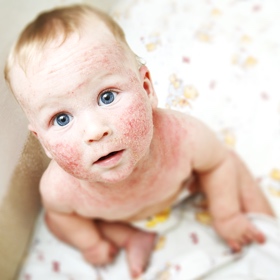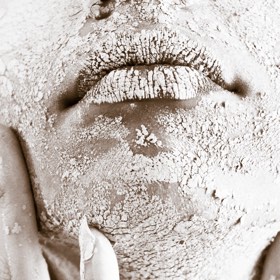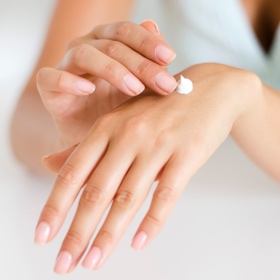How to treat Eczema
Resident GP Dr Martinez, who has great interest in Dermatology, at Shine on the Green discusses causes, conditions and how to treat Eczema.
Eczema (or Dermatitis) is a condition that causes the skin to be generally dry. It may also become itchy, red, and cracked. Eczema mainly affects children, but can continue into adulthood.
What causes Eczema?
The exact cause of eczema is unknown. It is thought to be a combination of genes and things in the environment which trigger it.
Skin, amongst other things, works as a barrier. It prevents moisture from getting out and also protects us from external agents. People with Eczema has this ability altered causing dryness, itchiness and irritation.
There is a strong association between Eczema, Asthma and Hayfever/Rhinitis. These are conditions linked to some degree of hypersensitivity and excessive response from the body to external agents. Also there is some association with allergies, though Eczema is not an allergy as such.
In many cases, there is a family history of Eczema, Asthma or Hayfever. See Dr Martinez at Shine, Newington Green for advice and treatment.
About one in five children in the UK has eczema, with most starting to get it before the age of five. Many children develop it before their first birthday. In many cases Eczema clears up or significantly improves in many children as they get older.

What is the outlook?
Eczema varies in its severity and the areas it affects. People can have periods of time when it gets worse (flare-ups) and others with mild symptoms. At the same time can affect only a small area or start spreading all over the body.
Eczema cannot be cured but definitely can and should be managed successfully with creams and topical treatments in the majority of the cases.
It is important to achieve a good control of the flare-ups. If left untreated the affected skin changes its colour and appearance; It usually gets darker and thicker.
What are the main ways to control eczema?
· Avoiding trigger factors
· Frequent use of moisturisers (emollients)
· Use of topical steroids (steroid creams or ointments) for flared areas.
What are the trigger factors for eczema?
These vary from person to person but include:
 · Soaps and detergents: some soaps can actually irritate the skin of people with eczema. Usually is recommended baby shampoos with no perfumes.
· Soaps and detergents: some soaps can actually irritate the skin of people with eczema. Usually is recommended baby shampoos with no perfumes.
· Aerosols, sprays and perfumes: Any product airborne (things that can be sprayed) could affect people with eczema, specially affecting the area around the eyes.
· Infection may cause the eczema to become more inflamed and weepy and may require treatment with antibiotics. The cold sore virus can infect eczema so try to avoid direct contact with cold sores.
· Clothing: Some clothes such as wool or nylon may make eczema worse. Smooth and cotton fabrics are best. Clothes can be worn inside out so seams do not irritate skin.
· Heat can make things worse. Hot baths or showers, blankets and clothing will make eczema much more itchy and discomforting. That is one of the reasons the skin feels worse in bed, at night.
· Some people react to animal fur and contact with cats, dogs and horses. Also some people can be sensitive to house dust mites: Regular vacuuming of bedroom and damp dusting as well as covers for pillows and mattresses may help reduce exposure but it can be hard to do enough to make a difference unless the skin is severely affected.
· Food allergies: In a small number of people their eczema may be affected by some foods. A diary of foods and when flare-ups occur may help identify if food is a problem. It is important to discuss with your doctor before going on an exclusion diet. The National Eczema Society has information.
· Stress can make eczema worse and can make sufferers feel itchier.
What are the treatments for eczema?
Moisturisers
 These are sometimes called ‘emollients’. These are the most important part of the treatment for eczema. Its is crucial its regular use, not only on flare ups, and should be used daily 2 or 3 times a day even when the skin has settled down. When the skin is bad, they should be used many times each day.
These are sometimes called ‘emollients’. These are the most important part of the treatment for eczema. Its is crucial its regular use, not only on flare ups, and should be used daily 2 or 3 times a day even when the skin has settled down. When the skin is bad, they should be used many times each day.
Often we get asked which is the best moisturiser and the right and unanimous answer is the one that you or your child prefers.
Greasier products are often most effective, especially in babies or toddlers, but sometimes its use is not favoured by the patients as they can be quite messy.
Moisturisers can be used in the bath instead of soap based products. Avoid perfumed products.
Try to smooth on moisturisers in the direction of any hair growth rather than rubbing it in.
Topical Corticosteroids (steroids)
These are creams and ointments with steroids that are required for flare up areas of eczema. It is important to continue using moisturisers regularly whilst using these. The steroid creams/ointments should be stopped once the eczema has settled down.
People sometimes worry about topical steroids but if used in the correct strength and quantity they are very safe and usually very effective. Not all the steroids creams are the same, and not all the areas treated are similar (is not the same the skin in the face compared to the skin of the palm of the hand). Your doctor should prescribe you the right steroid cream for the right part of the body being treated. If used under correct supervision, steroid creams are very safe and one of the main treatments for the eczema flare-ups
Eczema is a very common condition that can cause severe distress in the person who suffers from it and their families. It is a manageable disease, and if correctly done, people who suffers from it should lead a normal life most of the time.

Dr Martinez has been successfully working with patients suffering from eczema for many years. He feels passionate about giving patients control back over their skin and helping them to develop a normal life. All the treatments mentioned before are part of the usual management that you may expect after a thorough consultation and personalised treatment plan.
Dermatology Cosmetic Dermatology
Email Dr Martinez to find out more
More information:
National Eczema Society: www.eczema.org
http://www.eczema.org/factsheets
www.patient.co.uk has lots more information about eczema including details about finger-tip units.
British Association od Dermatology: Eczema leaflet.
http://www.bad.org.uk/shared/get-file.ashx?id=69&itemtype=document
To watch videos on how to apply your creams go to: www.itchysneezywheezy.co.uk
References:
Atopic eczema in children, NICE Clinical Guidelines: July 2018
Eczema – atopic, Clinical Knowledge Summaries: January 2018
